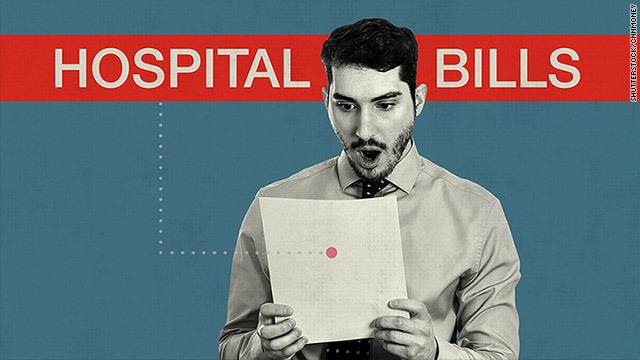10 Reasons Married Women May Not Have A Satisfying Sex Life
August 12, 2009Surgical techniques may help alleviate migraines
August 13, 2009In my blog of three days ago, “One side says no ‘death panel’ in health care bill,” I showed you an Associated Press story that blasted critics of Obamacare who claim that a “death panel” would make life and death decisions if President Barack Obama’s health care plan becomes law. The story’s lead mentioned a Facebook post by former Alaska Gov. Sarah Palin. Her inflammatory message spoke of a “death panel” that could determine the fate of her Down Syndrome child. Was she right or wrong?
More Information:
As the AP story reported accurately, the bill mentions no “death panel.” The AP lead spoke of a theory in which “federal bureaucrats would play God, ruling on whether ailing seniors are worth enough to society to deserve life-sustaining medical care.”
That is a fair statement for a news story, because it is true. Critics do have those fears.
However, after introducing the subject, the lead paragraph summarized with this: “Palin and other critics are wrong.”
In response to that, the Colorado Spring Gazette opined:
They are wrong to frighten Americans with visions of a sinister panel that makes arbitrary decisions to sentence old, ugly, or disabled Americans to death. And AP reporter Ricardo Alonso-Zaldivar is right to inform readers that Obama’s proposal contains no language that would establish a “death panel.”
The story, however, is wrong if the sweeping declaration that “critics are wrong” is taken to include those who believe government bureaucrats and politicians would make life and death decisions based upon cost benefit analyses.
They would do just that.
They would weigh the costs of various drugs and treatments, and determine who gets them and who does not.
There is no way around it.
Government health care requires rationing, which means bureaucrats and politicians must decide who lives and dies, even if they don’t consider themselves part of an evil “death panel.” Consider the facts:
- Obama’s health care plan would extend health coverage to more Americans. In doing so, the plan would immediately put greater demand on a relatively fixed supply of health care goods and services that cannot expand rapidly.
- Increasing demand on a fixed supply requires rationing. If society has 50 apples and government promises them to 100 dependents, government must ration the apples by halving them. If a woman needs a whole apple to survive, she will die. Government, having promised apples for all, will have no means of allowing the woman an entire apple.
- If government imposes a price control on apples, due to its own limited financial means, fewer will produce apples and the supply will dwindle. Likewise, if government imposes price controls on medical procedures and supplies, fewer will become doctors, nurses and pharmacologists and the supply of health care will decline.
Our health care system is a mess, involving inorganic supply/demand distortions that result in irrational costs. Much of the problem results from a tax code that encourages a third-party payer system in which consumers have little say regarding which medical plans they buy and how much they pay for drugs and procedures.
Most Americans receive at least a base level of emergency care; some are able to afford the best care in the world; others die early for lack of access to adequate, timely health care.
In the real world, limited supplies of goods and services are rationed one way or another.
None of this would change under Obama’s plan. Some Americans would flourish and others would die.
Under the current system, private contracts and finances are central factors in decisions about life and death. An elderly person who pays for a private contract (in the form of an insurance policy) receives expensive treatments if those treatments are part of the contract.
Under Obama’s plan, government authorities would decide on treatments. It is not because government is evil. It is because everyone cannot have unlimited health care in a world of limited health care, so decisions must be made.
The economic realities of health care distribution are the reason government authorities decided Barbara Wagner would die, instead of receiving the medication her doctor prescribed to slow the growth of her lung cancer. Wagner belonged to the Oregon Health Plan, which is government-run health care.
The plan had limits, managed by government authorities, and one of those limits excluded expensive, advanced treatments for cancer patients with poor prospects.
As reported by ABC News, state authorities told Wagner in 2008 they could not pay for treatment; they would pay for physician-assisted suicide. Wagner declined suicide, but died from cancer after a private pharmaceutical finally donated the drugs she hoped would save her life.
Despite what the AP story implies, a government health care system would involve government decisions pertaining to life and death.
It is not a conspiracy; it is economic fact.
So, under Obamacare the government health care system would have to utilized government bureaucrats making medical decisions pertaining to life and death. Call that “playing God.” Call that a “death panel.” Call that “playing doctor.”
But, one way or the other, the government will make some (or many) life and death decisions – instead of you and your doctor.
That’s a fact.
It’s happen in Great Britain, and it can happen here. To learn more about that, take a look at my blog, “What if healthcare reform in America led to the banning of life-prolonging cancer drugs? Don’t think it could happen? Then read this.”



